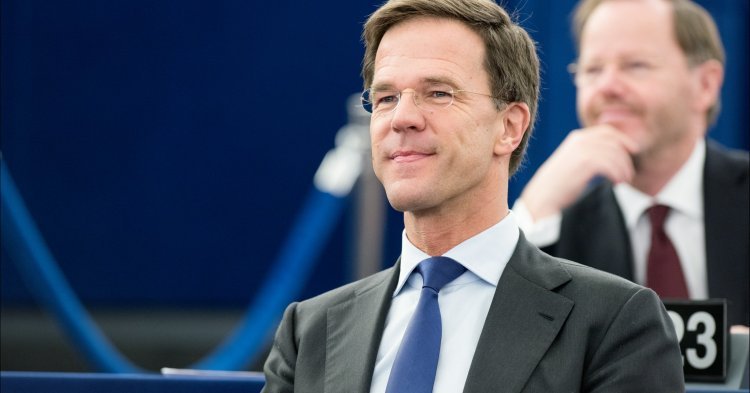“It’s disgusting, senseless, totally unacceptable. This recurrent pettiness is threatening the future of the European Union,” was the comment made by the Portuguese Prime Minister, Antonio Costa. It aimed directly at the Netherlands’ to set-up ‘coronabonds’, being supported by Germany who, having broken a budgetary deadlock, intend to return “once the crisis is over […] to the politics of austerity and, as soon as possible, the politics of budgetary balance,’’ according to the German Finance Minister, Peter Altmaier.
Meeting via videoconference on 26th March for a European Council meeting, the Member States were eager to dismantle the economic and budgetary dogmas which govern the EU, but collided with a wall of selfishness held firmly by the Netherlands and Germany.
Broadly speaking, two visions of the European Union that are up against one another. On one hand, there are those in favour of corona bonds and the opportunity that this crisis offers to deepen the economic solidarity of the EU. This week, 9 Member States launched an appeal for ‘tomorrow’s Europe to live up to the aspirations of the past.’’
On the other hand, there are the ‘the frugal ones,’ that is, roughly the same team headed by Dutch Prime Minister Mark Rutte and German Chancellor Angela Merkel that blocked the European budget last February. They seem to see the Union as nothing more than a set of economic and budgetary regulations.
The ‘coronabonds’ scheme
This name borne out of current circumstances refers to the implementation of a mechanism to mutualise debt between the Eurozone countries. The idea of mutualisation was already on the table after the 2008 global financial crisis, as well as that of the Eurozone in 2010.
To free up funds for government spending, Member States issue bonds, whose interest rates vary according to their repayment capacity as assessed by renowned rating agencies. The interest rate is, therefore, higher or lower depending on the State’s level of indebtedness and the stability of its economy. The introduction of common bonds would encourage the smoothing out of different borrowing capacities and to mutualise the resulting risks.
This idea was refused outright by the Netherlands or Germany who insist on tight budgetary control, and do not intend to pay for what they consider to be budgetary laxism.
The ESM, a tool for the orthodox
The European Stability Mechanism (ESM) is considered one possible solution. Made up of European funds of up to €700 billion, this international organisation is there to prevent countries from falling into a debt spiral by providing loans with lower interest rates. In return, the beneficiary state is asked to carry out reforms decided by the ESM. ESM’s only form of support is the loan from other European states via a common pot. Consequently, each country’s aim is to avoid being drawn into a debt spiral.
Is this crisis an opportunity?
This is not the time for keeping score: as French journalist Jean Quatremer points out, the aftermath of this crisis ‘will be mainly political’. This shared trauma must, in fact, be transformed into an opportunity. It is often in difficult times that it’s possible to make the greatest advances.
The situation is different to that of 2011. At that time, Angela Merkel, at the peak of her influence within the Union, facing countries victim to their own mistakes. No, this time we are dealing with an external danger that does not only concern budgetary and economic issues. It is also what makes the ‘face-off’, between a German Chancellor at the end of her reign and countries who finally dare to stand up to her, possible.
In addition to the irritation of the Portuguese Prime Minister, voices are starting to be raised across the Union to denounce this selfishness, such as the President of the Italian Republic, Sergio Mattarella, who calls European governments to rise above their ‘old ways’. More astonishing is the statement made by the former Vice Chair of the German Social Democratic SPD Party, Sigmar Gabriel, who speaks of a ‘shame’ with regard to Germany’s behaviour. Beyond political figures, even the President of the Dutch Central Bank, Klaas Knot, opposes Mark Rutte and calls for more solidarity, ‘in the form of corona bonds or via the ESM.’
If yet another European sclerosis is not stopped, there is a risk of adding a third crisis into the mix at the European Union: a political one. Germany’s and the Netherlands’ behaviour - behind which we find other countries like Austria or Sweden - could be the final blow to the European Union, at least to a Union that is not only economic but above all political in the making.
It is time to change the global frame of reference. Let us see this crisis as an opportunity to shift from an economic union to a political union founded upon solidarity. The use of coronabonds could be the first step towards this shift.
What will the people think in the aftermath of this pandemic, when they realise that their leaders have again been arguing over money, when, ultimately it was all about lives?


Follow the comments: |
|
